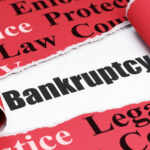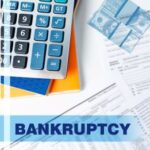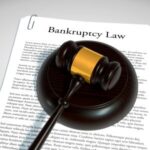Monthly Archives: February 2025

How Long Does the Automatic Stay Last?
One of the benefits of filing for bankruptcy is that, as soon as you file, a type of injunction known as the automatic stay takes effect. If you have already begun to do research into the bankruptcy process, or you have friends or family members who have sought bankruptcy protection, you may already know… Read More »

Can I File for Chapter 7 Bankruptcy without Any Assets?
If you are considering Chapter 7 bankruptcy as an individual or consumer bankruptcy filer, you may have a general sense of how this type of bankruptcy works. Broadly speaking, in a personal Chapter 7 bankruptcy case, the debtor will file a bankruptcy petition along with a range of “schedules” that provide the court with… Read More »

Negotiating More Favorable Loan Terms with a Chapter 13 Bankruptcy
When a debtor files for Chapter 13 bankruptcy, you might hear about them getting more favorable loan terms as part of the bankruptcy case. The actuality is more complicated than that, but it is true that you may be able to have certain loans modified in conjunction with your reorganization bankruptcy case, and it… Read More »

Bankruptcy and Disability Benefits: What to Know
Many individuals file for bankruptcy after sustaining a disabling injury or receiving a disabling medical diagnosis. Due to their disability, they are no longer able to work and to earn the same income they received prior to their disability, and as a result, their finances suffer. These bankruptcy filings often include a significant amount… Read More »

Common Post-Confirmation Issues in Chapter 13 Bankruptcy Cases
Chapter 13 bankruptcy cases are lengthy, and there are a number of steps in the process that result in these types of reorganization bankruptcies lasting for years. Most significantly, a debtor must have a repayment plan approved, and the terms of the repayment plan typically last three to five years under US bankruptcy law…. Read More »

What is the Absolute Priority Rule in Chapter 11 Bankruptcy?
For any business or individual planning for a Chapter 11 bankruptcy filing, it is important to know about the “absolute priority rule” and its role in this type of bankruptcy case. The absolute priority rule concerns the order and manner in which creditors must be repaid in the proposed repayment plan. Although it initially… Read More »

What Are Creditors’ Committees in Chapter 11 Bankruptcy?
Is your business considering filing for Chapter 11 bankruptcy? Or are you an individual whose debts are too high to qualify for Chapter 13 bankruptcy, and thus you are considering a Chapter 11 bankruptcy filing? In either case, it is important to understand the role that creditors’ committees can play in Chapter 11 cases…. Read More »

Bankruptcy Dismissal Versus Discharge
Individuals who file for bankruptcy typically expect to have their debts discharged at the end of their bankruptcy case — whether that is several months after filing a Chapter 7 bankruptcy petition or years after filing a reorganization bankruptcy case under Chapter 13 or 11. Yet in some cases, rather than receiving a discharge,… Read More »

Can Bankruptcy Erase My Tax Debts?
Many individual debtors who file for bankruptcy, especially under Chapter 7, do so in order to receive a discharge of their debts and to get a clean start financially speaking. A wide range of common consumer debts are eligible for discharge under the US Bankruptcy Code, and those debts often include credit card debt,… Read More »

Can I Seek an Early Discharge in My Chapter 13 Case?
Are you currently considering a Chapter 13 bankruptcy filing, or are you currently in the process of working through the terms of a repayment plan in a Chapter 13 bankruptcy case? If so, you likely know that the terms of a Chapter 13 repayment plan are long. To be sure, Chapter 13 repayment plans… Read More »



